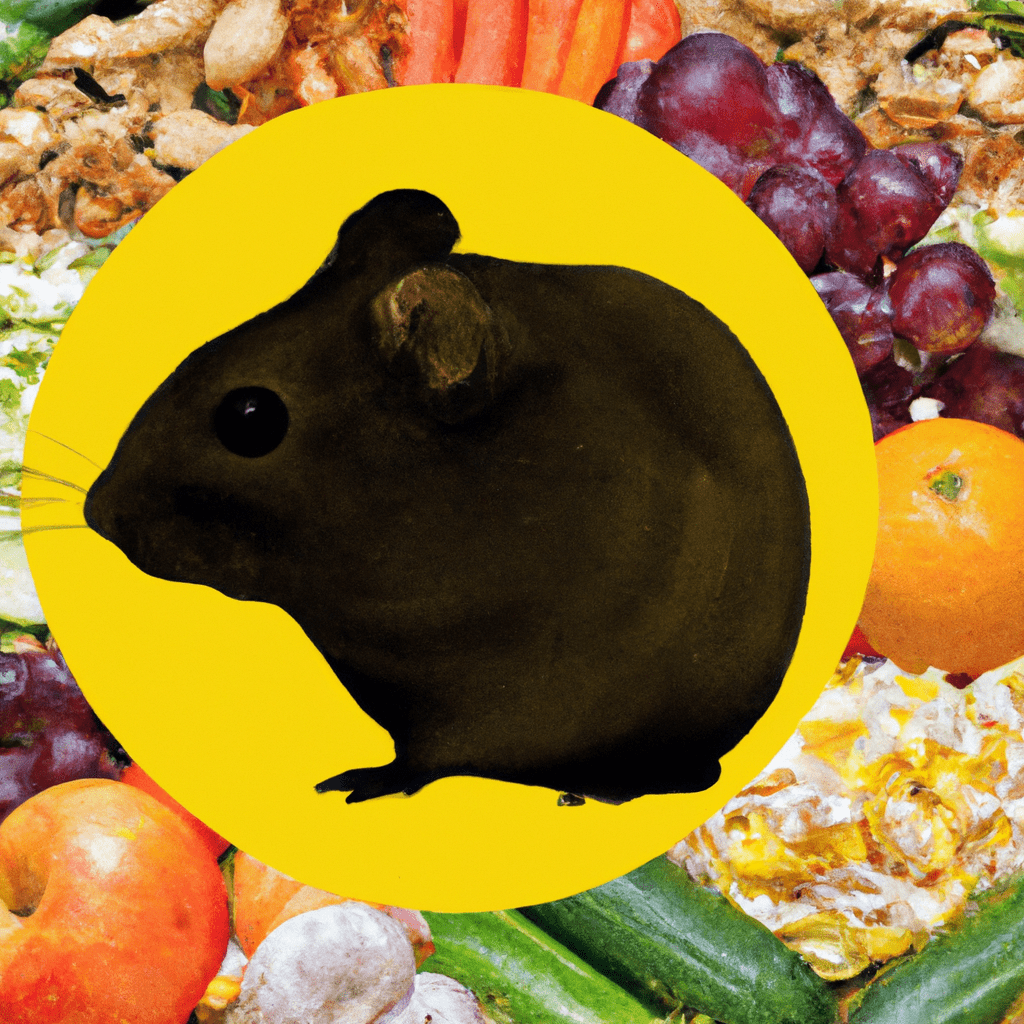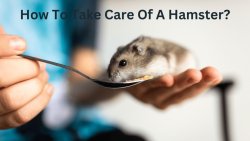Unlocking the Secrets: Exploring the World of Hamster Nutrition
Hamsters, those adorable and tiny creatures that often find their way into our homes, have long been cherished as beloved pets. However, when it comes to their nutritional needs, there seems to be a lack of information readily available. Many hamster owners might argue that feeding these small rodents is a straightforward task; after all, they are known for being able to eat almost anything. But is this really true? Are we truly providing them with a balanced diet?
In this article, we will delve into the world of hamster nutrition and uncover its secrets. By understanding their dietary needs and providing them with appropriate food choices, we can ensure optimal health and wellbeing for our furry friends. We will explore different types of hamster food, discuss the importance of a balanced diet, and provide guidance on portion control.
So join us on this journey as we unlock the mysteries surrounding hamster nutrition. Through evidence-based research and expert advice, we aim to empower you with knowledge that will enable you to make informed decisions about your pet’s diet. Let’s give our little companions the nourishment they deserve!
Key Takeaways
- Hamsters require a balanced diet of high fiber and protein to support digestion and muscle growth.
- Dairy products, citrus fruits, and nuts should be avoided due to common food allergies in hamsters.
- Water bottles are recommended over water bowls to provide clean and fresh water and prevent contamination.
- Regular veterinary check-ups and observation of a hamster’s health and weight are important for proper diet adjustments.
Understanding Hamster Dietary Needs
Understanding the dietary needs of hamsters is essential for providing them with a nutritionally balanced and appropriate diet. Hamsters have specific dietary restrictions that must be considered to ensure their overall health and well-being. These small rodents are omnivorous, meaning they can consume both plant-based and animal-based foods. However, they have certain nutritional deficiencies that need to be addressed.
Hamsters require a diet high in fiber, which aids in their digestion and prevents constipation. Additionally, they need a good source of protein to support muscle growth and repair. It is important to note that hamsters cannot digest lactose, so dairy products should be avoided. Furthermore, excessive amounts of fat can lead to obesity and other health issues in hamsters.
Nutritional deficiencies in hamsters can result from an inadequate or unbalanced diet. For example, a lack of vitamin C can lead to scurvy, while insufficient calcium intake may cause bone disorders. Therefore, it is crucial to provide a varied diet consisting of fresh fruits and vegetables, grains, seeds, and occasional insects or lean meats.
Understanding the dietary needs of hamsters is vital for their overall health. By considering their dietary restrictions and addressing potential nutritional deficiencies, we can provide them with a balanced diet that promotes optimal well-being.
The Importance of a Balanced Diet
Balancing the nutritional needs of hamsters is crucial for their overall health and well-being. Hamsters require a balanced diet to ensure they receive all the necessary nutrients in the right quantities. One important component of a hamster’s diet is fiber, which plays a vital role in promoting healthy digestion and preventing gastrointestinal issues. Fiber helps regulate bowel movements, prevents constipation, and reduces the risk of obesity in hamsters.
A poor diet can have detrimental effects on a hamster’s health. If a hamster does not receive an adequate amount of nutrients, it may suffer from malnutrition or develop various health problems such as dental issues, digestive disorders, and weakened immune system. Additionally, an imbalanced diet lacking essential nutrients can lead to stunted growth and decreased lifespan.
To prevent these negative consequences, it is imperative to provide a well-balanced diet that includes high-quality commercial hamster food supplemented with fresh fruits, vegetables, and occasional treats. It is also essential to avoid overfeeding or underfeeding your pet as both can have adverse effects on its health.
In the next section about ‘types of hamster food,’ we will explore different options available for providing a well-rounded diet for your furry friend.
Types of Hamster Food
Different types of food are available to meet the nutritional needs of hamsters and ensure their overall health and well-being. Hamster food brands offer a wide range of options that cater to different dietary requirements. These commercial pellet-based diets are formulated to provide a balanced mix of proteins, carbohydrates, fats, vitamins, and minerals. They often contain ingredients such as seeds, grains, vegetables, and fruits to mimic the natural diet of hamsters in the wild.
In addition to commercial foods, some hamster owners prefer homemade recipes to ensure complete control over their pet’s nutrition. Homemade hamster food recipes often include a combination of grains, legumes, dried fruits or vegetables, nuts/seeds for added texture and variety. However, it is crucial to consult with a veterinarian or an expert in small animal nutrition before embarking on creating homemade diets for your furry friend.
To aid in understanding the different types of hamster food available on the market today along with some popular homemade recipes that can be made at home using simple ingredients found in most households we have created this table:
| Type of Food | Pros | Cons |
|---|---|---|
| Commercial | Nutritionally balanced | Limited variety |
| Pellet-based | Convenient | Lack of fresh ingredients |
| Diets | Easy portion control | May contain fillers |
| Homemade Recipes | Allows customization | Need for nutritional expertise |
| Utilizes fresh ingredients | Time-consuming |
Understanding the different types of food available will help you make informed decisions about what is best for your furry friend’s diet. Moving forward into the next section about feeding schedule and portion control…
Feeding Schedule and Portion Control
Feeding hamsters according to a structured schedule and controlling their portion sizes is important for maintaining their overall health, with research indicating that overfeeding can lead to obesity, which is a common health issue among pet hamsters. To ensure proper nutrition and prevent excessive weight gain, it is essential to establish a feeding frequency and measure portions accurately. Here are four key considerations when it comes to the feeding schedule and portion control for hamsters:
-
Consistent Feeding Schedule: Hamsters should be fed at the same time each day to regulate their metabolism and prevent overeating.
-
Balanced Diet: Hamsters require a variety of foods including commercial pellets, fresh vegetables, fruits, and occasional treats. A balanced diet provides essential nutrients for their overall well-being.
-
Portion Sizes: It is crucial to measure the appropriate amount of food based on the specific nutritional needs of your hamster’s breed, age, size, and activity level.
-
Avoid Overfeeding: Offering too much food can lead to selective eating or hoarding behaviors in hamsters, potentially causing malnutrition or obesity.
Transitioning into the subsequent section about ‘hydration and water needs,’ it is equally important to provide adequate water sources for hamsters as part of their daily care routine.
Hydration and Water Needs
One essential aspect of hamster care involves ensuring proper hydration and meeting their water needs. Hamsters, like all living beings, require access to clean and fresh water at all times. Water quality is crucial for maintaining the health and well-being of these small pets. It is recommended to provide water through a water bottle rather than a water bowl to minimize the risk of contamination, as hamsters are known for burrowing and may accidentally soil their drinking water.
Using a water bottle ensures that the water remains clean and free from debris or any potential contaminants. Additionally, it helps prevent spillage or evaporation, ensuring that the hamster has constant access to hydration throughout the day. Water bottles also allow for easy monitoring of how much your pet is drinking, which can be helpful in identifying any changes in their behavior or health.
Transitioning into the subsequent section about ‘safe and unsafe foods for hamsters,’ it is important to consider not only what they drink but also what they eat. Providing a balanced diet that meets their nutritional needs is crucial for their overall well-being.
Safe and Unsafe Foods for Hamsters
When considering the dietary needs of hamsters, it is important to be aware of the safe and unsafe foods they can consume. For example, a study conducted by researchers found that hamsters should avoid consuming chocolate as it contains theobromine, which can be toxic to them. The hamster digestive system is designed for a diet that consists mainly of grains, seeds, fruits, and vegetables. However, there are certain foods that can cause common food allergies in hamsters. These include dairy products such as milk and cheese, citrus fruits like oranges and lemons, and nuts such as almonds and peanuts. It is essential to avoid feeding these foods to hamsters as they may lead to digestive issues or allergic reactions.
In addition to these specific allergens, it is generally recommended to avoid feeding hamsters any processed or sugary foods. This includes items like chips, cookies, and candies. While small amounts of certain fruits and vegetables can be given as treats occasionally, it is important not to overdo it. Too much sugar or water-rich foods can disrupt their delicate digestive balance.
Transitioning into the subsequent section about ‘treats and snacks’, it is crucial for owners to understand how different types of food affect a hamster’s health.
Treats and Snacks
Hamsters, like any other living creatures, enjoy indulging in treats and snacks. However, it is essential for hamster owners to understand the importance of providing their furry companions with healthy snacking options. Hamster treat recipes can be an excellent way to ensure that these small pets receive adequate nutrition while still enjoying a tasty snack.
When it comes to selecting treats for hamsters, it is crucial to choose options that are safe and beneficial for their overall well-being. Some healthy snacking choices include fresh fruits and vegetables such as apples, carrots, and leafy greens. These foods provide essential vitamins and minerals necessary for a hamster’s diet.
In addition to fruits and vegetables, there are commercially available hamster treats in the market that are specifically formulated to meet their dietary needs. These treats often contain a balanced mix of nutrients suitable for hamsters’ digestive systems.
However, it is vital to remember that treats should only constitute a small portion of a hamster’s diet. Too many treats can lead to obesity or nutritional imbalances. Therefore, moderation is key when offering these indulgences.
Transitioning into the subsequent section about supplements and vitamins, while treats can add variety and enjoyment to a hamster’s diet, they may not always provide all the necessary nutrients. Therefore, it is important to explore the role of supplements and vitamins in ensuring optimal health for our furry friends.
Supplements and Vitamins
Supplements and vitamins play a vital role in supporting the overall health and well-being of hamsters. Hamster dietary supplements are formulated to provide additional nutrients that may be lacking in their regular diet. Here are three important points to consider regarding hamster dietary supplements:
-
Vitamin requirements: Hamsters have specific vitamin requirements that need to be met for optimal health. Vitamin deficiencies can lead to various health problems such as weakened immune system, poor growth, and reproductive issues. Therefore, it is crucial to ensure that your hamster’s diet includes adequate amounts of vitamins A, D, and E.
-
Choosing the right supplements: When selecting supplements for your hamster, it is essential to choose products specifically designed for them. Avoid giving human supplements or those meant for other animals as they may contain ingredients that are harmful or ineffective for hamsters.
-
Moderation is key: While supplements can be beneficial, it is important not to overdo it. Providing excessive amounts of certain vitamins can actually be detrimental to your hamster’s health. Follow the recommended dosage guidelines provided by the manufacturer or consult with a veterinarian for guidance.
By understanding the importance of dietary supplements and ensuring proper vitamin intake, you can help promote your hamster’s overall well-being and prevent potential health issues. Transitioning into monitoring your hamster’s health and weight involves keeping a close eye on their daily activities and making necessary adjustments in their diet if needed , such as increasing or decreasing the amount of food given or introducing different types of vegetables and fruits to ensure they are getting all the necessary nutrients. Additionally, providing them with plenty of fresh water and maintaining a clean living environment can also contribute to their overall health and well-being. Regular veterinary check-ups are also important to catch any potential health issues early on and provide appropriate treatment.
Monitoring Your Hamster’s Health and Weight
In our exploration of hamster nutrition, we have discussed the importance of supplements and vitamins in their diet. Now, let us turn our attention to monitoring your hamster’s health and weight. This aspect is crucial as it allows you to ensure that your furry friend remains in optimal condition.
One key element to monitor is your hamster’s exercise routine. Hamsters are naturally active creatures, and regular physical activity is essential for their overall well-being. Providing them with an appropriate-sized wheel or an exercise ball will allow them to engage in daily exercise and prevent obesity-related issues.
Additionally, being aware of the signs of a healthy hamster can help you identify any potential problems early on. A healthy hamster should have clear eyes, a shiny coat, and show signs of curiosity and alertness. Furthermore, their teeth should be properly aligned and not overgrown.
To emphasize the significance of these monitoring practices, a 3-column by 5-row table can be used:
| Signs of a Healthy Hamster |
|---|
| Clear Eyes |
| Shiny Coat |
| Curiosity |
| Alertness |
| Proper Teeth Alignment |
By observing these indicators closely and maintaining an appropriate exercise routine for your pet hamster, you can ensure their well-being while allowing them the freedom they desire.
Frequently Asked Questions
Can hamsters eat human food?
Hamsters should not be fed human food as it may contain ingredients that are harmful to their health. Instead, provide them with a balanced diet consisting of hamster-specific foods such as fruits, vegetables, and pellets.
How often should I feed my hamster treats?
Feeding schedules for hamsters should include occasional treats, but frequency and portion size must be controlled to prevent obesity and health issues. Recommended treat options include fruits, vegetables, and small amounts of safe grains or seeds.
Can hamsters eat fruits and vegetables?
Feeding hamsters a balanced diet has numerous benefits. However, certain fruits and vegetables can be harmful to them. It is important to choose safe options and consult with a veterinarian for guidance.
What are some signs of malnutrition in hamsters?
Signs of malnutrition in hamsters can include weight loss, dull fur, lethargy, and dental problems. Meeting the dietary requirements for hamsters is crucial to prevent these signs and ensure their overall health and well-being.
Is it necessary to give my hamster vitamin supplements?
Vitamin supplements may not be necessary for hamsters if their diet meets their nutritional requirements. However, in certain cases such as illness or inadequate diet, vitamin supplements can provide benefits by filling any nutritional gaps and promoting overall health.
Conclusion
In conclusion, understanding the nutritional needs of hamsters is crucial for their overall health and well-being. A balanced diet, consisting of a variety of hamster foods, should be provided in appropriate portions and on a regular schedule. It is important to ensure that hamsters stay hydrated by providing fresh water at all times. Additionally, it is essential to be aware of safe and unsafe foods for hamsters, as well as the importance of incorporating treats and snacks in moderation. Supplements and vitamins may also be necessary to maintain optimal health. Regular monitoring of your hamster’s health and weight is vital to detect any potential issues early on. By following these guidelines, you can ensure that your furry friend receives the best possible nutrition for a happy and healthy life.
- Diy Delights: Creative Ideas For Hamster Toys And Accessories - April 13, 2024
- Creating A Healthy Habitat: Essential Tips For A Happy Hamster Home - April 13, 2024
- Enrichment Galore: Boosting Your Hamster’s Happiness With Emojis - April 13, 2024


